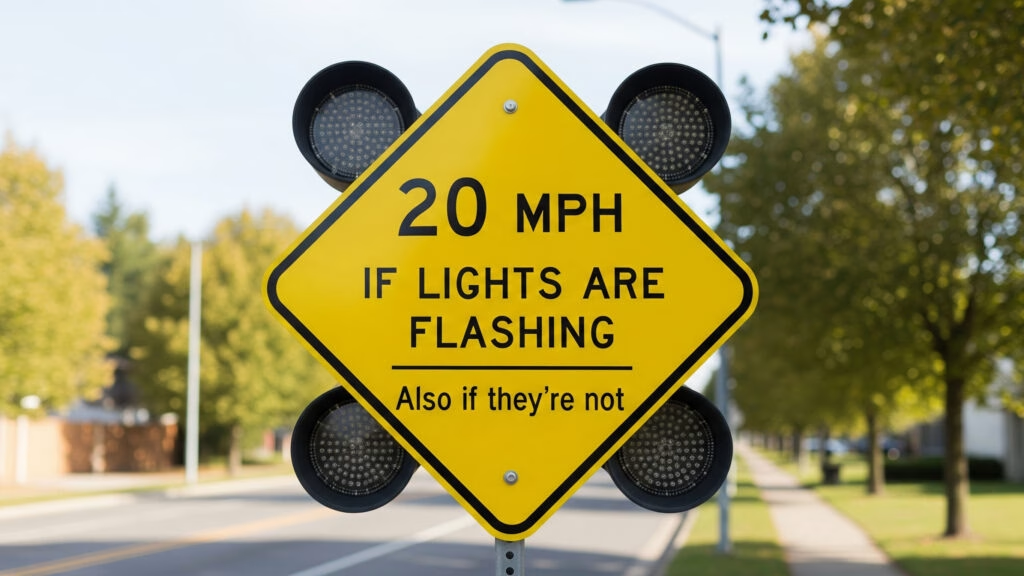Why Are Florida Drivers Getting Ticketed in School Zones When Signs Aren’t Flashing?
If you’ve ever driven through a school zone in Florida, you’ve probably seen those familiar signs: 20 mph when flashing. Seems straightforward, right? Slow down when the lights are blinking, and you’re in the clear otherwise. But lately, drivers across the state are finding themselves slapped with hefty fines—even when those beacons aren’t lit. So, what’s really going on?
Can You Really Get a Ticket When the School Zone Lights Aren’t On?
Here’s where things get sticky. According to Florida law, speed cameras can enforce school zone speed limits whether or not the flashing lights are on. That means the sign might say “when flashing,” but the camera is watching all the time. Take Joe Weaver, for example. He was ticketed for going 38 mph in what he thought was a 40 mph zone because the sign wasn’t flashing. Turns out, the sign didn’t even have lights to flash in the first place.
This isn’t just a one-off. In Hillsborough County alone, 46 drivers have tried to contest their tickets this year. Not a single one has been dismissed. The law, as written, doesn’t require the signs to actually flash for the lower speed limit to be enforced. It’s a classic case of the letter of the law clashing with what most people would consider common sense.
Why Are So Many Drivers Losing Their Appeals?
You might think, “Surely, if I explain this in court, I’ll get off the hook.” Not so fast. Karen Bowman found out the hard way. She was ticketed for driving 33 mph in a school zone while the sign wasn’t flashing. Contesting the ticket cost her an extra $75—and she still lost. The magistrate overseeing these cases, Dr. Tom Santarlas, admits he doesn’t like the law, but his hands are tied. “There are times when the legislature falls short of its goal when enacting law; this is one of those times,” he said during a recent appeal.
It’s a frustrating cycle: drivers trust the signs, get ticketed anyway, and then discover the appeals process is both costly and, so far, fruitless.
How Much Money Are These Cameras Generating?
Let’s talk numbers. The company behind many of these cameras, RedSpeed, has installed them in 35 jurisdictions across Florida. In less than a year, nearly 500,000 tickets have been issued, raking in close to $32 million. Out of all those tickets, fewer than 300 have been dismissed statewide. That’s a staggering success rate for the cameras—and a major windfall for local governments and the companies running the systems.
David De La Espriella, a client relations director for RedSpeed, insists the law is working as intended. “I think it’s an excellent law,” he says. But for many drivers, it feels less like safety and more like a cash grab.
Is This Really About Safety or Just Revenue?
There’s no question that protecting kids around schools is important. According to the National Highway Traffic Safety Administration, school zone speed limits do reduce the risk of crashes and injuries. But when enforcement feels arbitrary or misleading, public trust erodes. If the sign says “when flashing,” but the law ignores the flashing part, drivers are left confused—and angry.
Some critics argue that these cameras are more about revenue than real safety. The numbers back them up: $32 million in less than a year, with almost no successful appeals. And when contesting a ticket costs more than just paying it, most people simply give up.
What Can Florida Drivers Do to Protect Themselves?
First, know the law. In Florida, assume that the school zone speed limit applies during posted hours, regardless of whether the lights are flashing. If you’re unsure, err on the side of caution and slow down. It might feel unfair, but until the law changes—or the signage gets updated—playing it safe is your best bet.
If you do get a ticket, weigh your options before contesting. With the odds stacked against drivers in appeals, it may not be worth the extra cost unless you have clear evidence the ticket was issued in error.
The big takeaway? Navigating Florida’s school zone cameras isn’t about perfection—it’s about smarter adjustments. Start with one change this week: always double-check the posted hours, not just the flashing lights. You’ll likely spot the difference in your wallet by month’s end.

